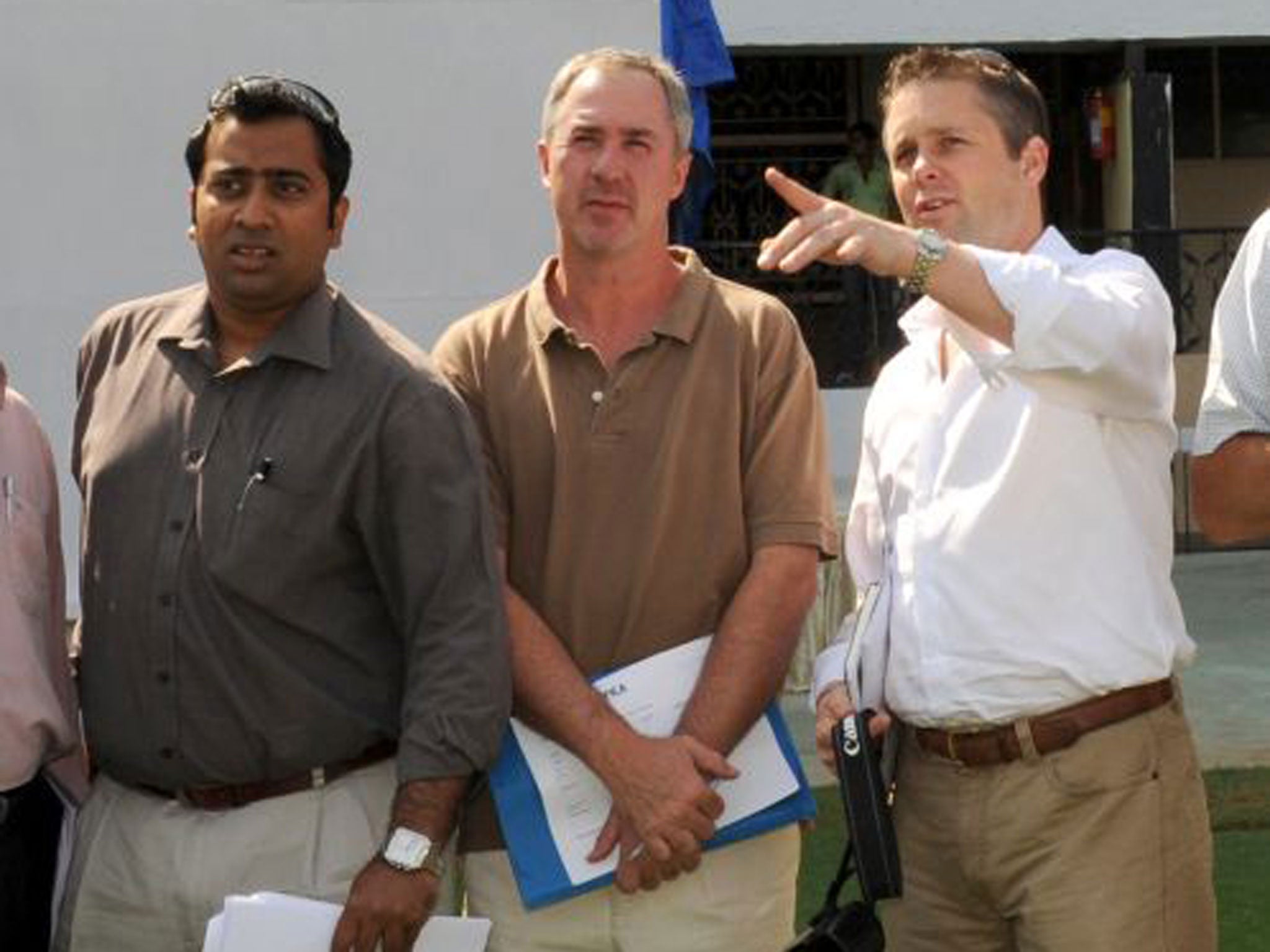Champions Trophy: India's rule could split game, warns Tim May

When India opened the Champions Trophy with such panache last week it was possible to think only of the good things. For a few hours they dazzled, playing a game of alluring skill and dexterity which did for South Africa.
Yet beneath the glittering finery of the cricket there lies a dark underbelly which some observers fear increasingly could be catastrophic for the game. It is linked indirectly to the scandals which have rocked the Indian Premier League, with allegations of spot fixing, and the less flashy but perhaps more susceptible Bangladesh Premier League.
But the broader concern is the way that the game is run and that it is run by India on behalf of India, or at least at their whim, due to their financial clout. From this stems the fear that the international game will be split beyond repair.
The potential disaster was thrown into sharp relief last week when Tim May suddenly resigned as head of the worldwide players' union, Fica. After eight years in the job he left with a vehement denunciation of the International Cricket Council and a culture of back-room deals and intimidation.
If this was the final volley of a man departing the fray, May had more to add two days later having had a little more time to reflect on the game he was leaving. He was still in deeply reproachful mood about the organisation which purports to run (and expand) the game.
May said: "You would like to think there are people who are strong within that board who would say, 'hey let's not wait until there is an absolute crisis'. I am not sure that point has yet quite been reached but all the signs are that it will be if we continue the slide.
"You can muddle along but you will deteriorate. I think you're going to run out of thumbs to plug all the leaks. Out of the countries that play international cricket, let's not paint a rosy picture here: Zimbabwe essentially broke, Sri Lankan cricket essentially broke, Bangladesh essentially broke or thereabouts, Pakistan, I don't think they're doing very well financially, the West Indies cricket board broke.
"We have got a model where there is going to be a moment in time where a number of Test-playing countries are actually going to fall over. We can't keep muddling on, the financial model needs to change and has to change."
May has been a passionate advocate for the players for 16 years, shortly after he finished a bowling career which took him to the heights. He played 24 Tests for Australia and appeared in two Ashes-winning series.
At the heart of his dire warning is the manner in which India are using their power, or misusing it as he sees it. He is particularly angered by the ICC's refusal to implement the Woolf Report, which it commissioned from the UK's former Lord Chief Justice and which recommended sweeping changes.
Part of the trouble, as May knows, is that the average fan hardly cares when he can see a new star like Shikhar Dhawan bat with the zest he did at Cardiff in making his maiden one-day hundred. Sometimes May must have felt he was a lone voice.
"The Woolf Report highlighted that the ICC is basically a boys club with the Test countries making decisions. The associate countries are discriminated against and even within that boys club there is discrimination among them where basically the powerful get their way and enforce voting by threats, intimidation, under-the-table deals. Typically the currency is fixtures against the larger nations."
During an interval interview on BBC's Test Match Special on Thursday, Dave Richardson, the ICC chief executive, did not dismiss May's claims. "It's his perception. Any organisation has its challenges and stuff that goes on behind closed doors. It would be silly to think it doesn't happen a ICC level."
Lord Woolf was damning of the way the ICC runs the game, virtually to protect the self-interest of the full members. He called for changes, an internal audit and less conflict of interest.
Richardson said: "There were 60-odd recommendations. We have to acknowledge that there is a gulf between what the Indian board think is good governance and what the New Zealand board might think. It took Australia three years to change. An Indian corporate has a slightly different view of what constitutes a conflict of interest than a corporate in Reading."
But May, who lost his seat on the ICC cricket committee this year after having initially been voted on, sees a steadfast refusal to change and a weakness on the part of others. "The other nine countries who sit on the executive committee have to take responsibility because after all they can say, 'No, we're not going to put up with this nonsense any more. We're not going to continue to give into threats and intimidation and feed the power of the schoolyard bully'."
In his brighter moments, May thinks that the IPL drama may provoke administrative change which will in turn lead to a different kind of Indian leadership. But then he has waited for years and seen only decline. "What has happened to our principles? Everything isn't about making more money. You don't want to prostitute yourself just to make more money. But when your commercial interest suffocates your principles and the pillars you built your sport on, you're in trouble."
Subscribe to Independent Premium to bookmark this article
Want to bookmark your favourite articles and stories to read or reference later? Start your Independent Premium subscription today.

Join our commenting forum
Join thought-provoking conversations, follow other Independent readers and see their replies